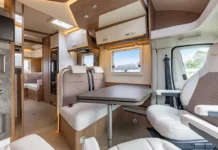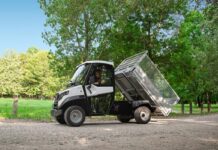
Volkswagen, a name known for its innovation in the automotive industry, has a storied history that has left a mark on the global car market. Since its inception in the 1930s, the iconic German automaker has played a role in shaping automotive trends and manufacturing some of the most recognizable vehicles on the road.
Known for their engineering prowess and the legendary Beetle, Volkswagen has demonstrated an exceptional ability to adapt with changing times and technological advancements.
In recent years, rising concerns about environmental sustainability have spurred a shift in the industry, leading to increased emphasis on eco-friendly practices and green energy adoption. Volkswagen has wholeheartedly embraced this challenge, recognizing the urgent need to mitigate the environmental impact of their operations.
The company has committed to a sustainable future, outlining ambitious plans to electrify their vehicle lineup, reduce carbon footprint and invest in renewable energy sources. Through this transition, Volkswagen aims to balance its legacy of automotive excellence with the commitment to caring for the environment, ensuring a better planet for future generations.
The Drive Towards a Greener Future: Volkswagen’s Vision
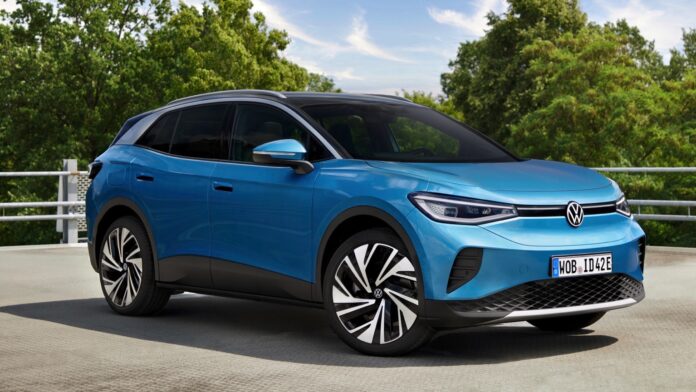
Volkswagen is surging ahead with firm sustainability goals, placing the automaker at the forefront of corporate social responsibility, particularly when it comes to combating climate change. This iconic car manufacturer is steering the industry towards a more eco-friendly horizon with ambitious commitments to reduce its carbon footprint and ensure its operations are environmentally sound.
At the heart of this vision is the ID.4 initiative, a bold step into the electric vehicles (EVs) sector that showcases Volkswagen’s dedication to innovation and sustainability.
By pioneering advancements in electric mobility, VW is not just promising a greener future but is actively driving us towards it, proving that responsibility and cutting-edge technology can go hand in hand in shaping a better world for generations to come.
Unveiling the ID.4: Volkswagen’s Sustainable Vehicle
Volkswagen’s ID.4 stands as a testament to the company’s commitment to sustainability and innovation in its product lineup.
Crafted with a design philosophy centered on clean aesthetics and functional minimalism, the VW ID4 offers a forward-thinking approach to electric mobility. The vehicle’s key features include an eco-friendly propulsion system that entirely eliminates tailpipe emissions, reducing the owner’s carbon footprint.
Volkswagen’s use of recycled materials within the ID.4’s cabin enhances the car’s environmental credentials, acknowledging the growing importance of responsible manufacturing processes.
With the ID.4, Volkswagen doesn’t just add another electric vehicle to the market; it showcases the brand’s dedication to shaping the future of driving by blending ecological consciousness with a refined driving experience.
This sustainable vehicle plays a role in Volkswagen’s lineup, marking a major step towards the brand’s goal of an electrified future and emphasizing the firm’s resolve to meet the challenges of an environmentally conscious world.
Innovation in Electric Vehicle Technology
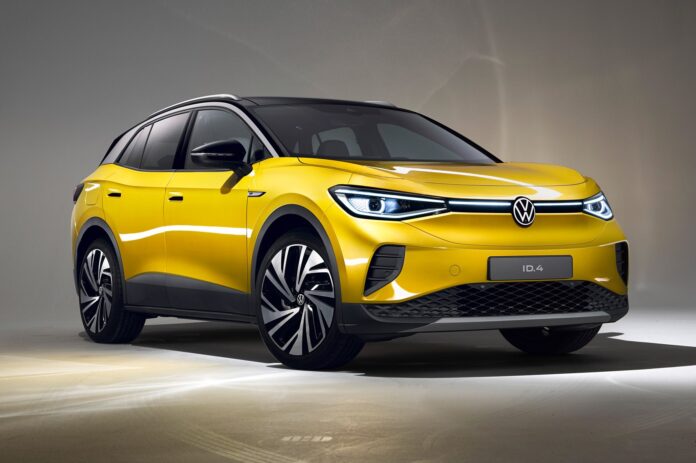
The electric vehicle has been undergoing rapid transformation, marked by major technological leaps, as seen in the Volkswagen ID.4. Serving as a fine example of modern engineering, the ID.4 integrates cutting-edge advancements that harmonize efficiency with eco-friendliness.
In addition to the hallmark features are its sophisticated battery system and regenerative braking, which collectively enhance driving range and reduce the need for frequent charging—a significant challenge in electric vehicle adoption.
These technological strides not only represent a leap over its gasoline-powered counterparts in terms of emissions, with the ID.4 producing virtually zero tailpipe pollutants, but they also favor a tangible shift towards environmental sustainability.
Recycling heat generated from the powertrain and incorporating lighter, recyclable materials, the ID.4 pushes the envelope further, contrasting sharply with the fuel consumption and CO2 emissions intrinsic to traditional vehicles.
By setting new benchmarks in vehicle design that prioritize the planet’s health without compromising on performance, the ID.4 stands as a testament to the progress in electric vehicle technology, hinting at a greener, cleaner future of personal mobility.
Volkswagen’s Strategies for Sustainable Manufacturing
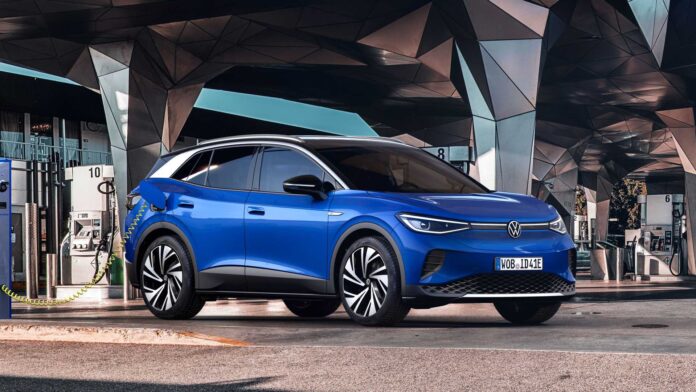
Volkswagen is paving the way for eco-friendly automotive production with the introduction of sustainable manufacturing strategies in the creation of their electric vehicle, the ID.4.
Recognizing the urgency of environmental conservation, the company has integrated several green practices within its production process. A major focus is on the reuse and recycling of materials along its production line, ensuring that resources are utilized efficiently and waste is minimized.
Volkswagen is committed to enhancing energy efficiency within its factories. This is not only cost-effective but also reduces the carbon footprint of the manufacturing phase.
By harnessing renewable energy sources and implementing cutting-edge technologies, Volkswagen is actively contributing to the fight against climate change, setting a benchmark for the automotive industry to shift towards more sustainable operations.
Charging into the Future: Infrastructure and Ecosystem for the ID.4
As the electric vehicle (EV) market accelerates, creating a robust charging network for vehicles like the Volkswagen ID.4 is key. Manufacturers and stakeholders are collaborating with governments and various entities to ensure not just the addition of charging stations but also the integration of sustainability at every turn.
This synergy is important in confronting challenges such as the current scarcity of infrastructure, especially in remote areas, and making the user experience as seamless as possible.
The key lies in providing access to charging points that are widespread, reliable, and easy to use. This endeavor goes beyond basics; it’s about crafting a complete, user-friendly EV ecosystem that supports the transition away from fossil fuels and ushers in a cleaner, greener future on the roads.
Community Engagement and Education on Electric Vehicles
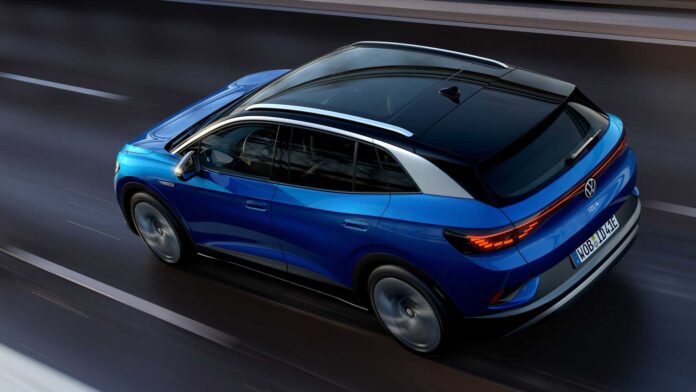
Volkswagen stands at the forefront of change, driving a cultural shift towards sustainable transportation by engaging and educating the public about the benefits of electric vehicles. Recognizing the important role of community involvement in this transition, they’ve launched initiatives to explain the workings and advantages of EVs.
Central to this campaign is their ID.4 model, which serves as a tool for community engagement and environmental advocacy. By hosting events, interactive sessions, and test drives, Volkswagen provides experiences that help dispel misconceptions about electric mobility.
These efforts are instrumental in transforming public perception, encouraging a move away from fossil fuels, and fostering a society that embraces clean transportation as the new norm.
Volkswagen’s ID.4 electric vehicle symbolizes their dedication to a sustainable future, blending innovative engineering with environmental responsibility.
As the automotive industry transitions from fossil fuels, the ID.4 stands out, merging quality and performance with eco-friendliness. This vehicle represents Volkswagen’s commitment to innovative, sustainable mobility, marking significant progress in their path towards a greener future.

